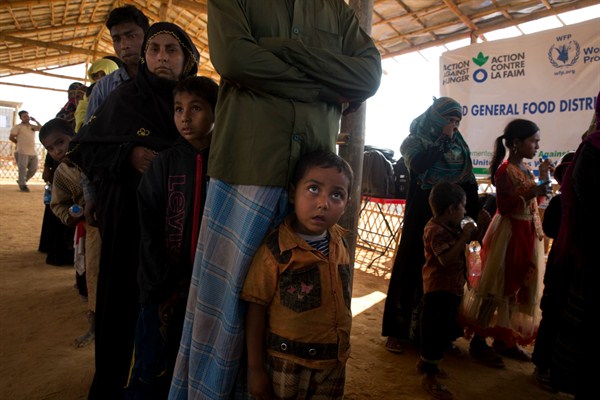Editor's note: This article is the first in a new series on food security around the world.
One year has passed since the most recent wave of Rohingya refugees streamed into Bangladesh, fleeing a brutal and indiscriminate security crackdown in their home state of Rakhine, in western Myanmar. On Monday, a United Nations commission recommended the investigation and prosecution of senior leaders in Myanmar’s security forces for “the gravest crimes under international law.” Almost 900,000 Rohingya refugees now reside in a network of camps in southern Bangladesh, largely reliant on external assistance for their basic daily needs. Food insecurity is a major threat for Myanmar’s displaced Muslim Rohingya minority, particularly during the monsoon rains, which began in June. In an email interview, Dipayan Bhattacharyya, the World Food Program’s deputy country director for Bangladesh, discusses the outlook for Rohingya refugees and the challenges the humanitarian community must overcome to meet their nutritional and health needs.
World Politics Review: How dire is the situation currently facing Rohingya refugees in Bangladesh, and how are aid agencies like the World Food Program coping with the challenge of providing for refugees' basic needs?

